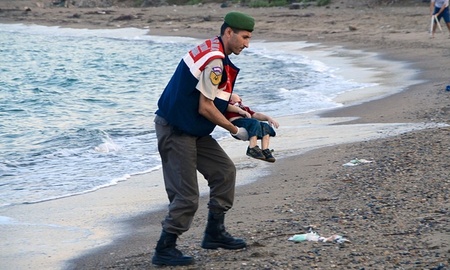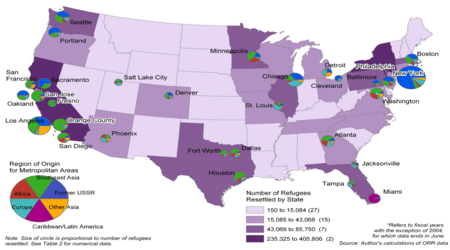
Image Credit: http://www.theguardian.com/world/2015/sep/02/shocking-image-of-drowned-syrian-boy-shows-tragic-plight-of-refugees
Like so many others, I wept when I saw the image of the dead Syrian boy on the news the other night. How can you not?
The image is horrific.
But so, too, is the crisis that prompted it – the war in Syria that has resulted in 7.6 internally displaced persons and another nearly 4 million refugees (many of them children) fleeing for fear of their lives.
What's more, this crisis is not new. It began in earnest in the spring of 2011 and has continued virtually nonstop since then.
Unfortunately, it's taken most of us four years – and the arrival of thousands of refugees in Europe – to care. Perhaps more accurately, it's taken most of us four years – and the picture of a dead child – to care. Never mind the fact that there were dead children before. Since they died in Syria or in refugee camps in Lebanon, Jordan, Turkey, or Iraq as opposed to on European shores, their deaths went largely unnoticed.
But here's the thing: The Syrians who are fleeing by the thousands to Europe are just a fraction of the refugees living throughout the world. Worldwide, there are approximately 20 million refugees – all people forced to flee their homeland for fear of persecution or death. Nearly half of them are children under the age of 18.
Long before refugees started flooding into Europe, there was a refugee crisis. Long after the major news outlets stop covering this story, there will still be a refugee crisis.
The good news is you can do something about this crisis.
1. Educate yourself. Learn about what's happening in Syria and other places (like the Congo and Myanmar) that continue to produce large numbers of refugees. If you're unsure where to start, check out the United Nations High Commission for Refugees website. Also consider reading books written by refugees, like Of Beetles and Angels, that tell of their experiences.
2. Advocate on behalf of refugees. Prompted by the image of the dead Syrian boy, there has been lots of talk recently about various European countries accepting their “fair share” of refugees. But what's a fair share? There's a crisis happening and people who need safety, shelter, and food. How can the rest of the world stand idly by and watch? Yes, we need to encourage European countries to open their doors and accept the refugees who are quite literally banging on them. But at the same time, we need to reach out to our Congressmen and Senators and advocate that we in America open our doors as well (or at the very least, fulfill the refugee quotas for the year that are already in place.)
3. Give. Give to the agencies (Like UNHCR) who work with refugees throughout the world. Or give more specifically. For example, through International Teams' Impact Rwanda, you can help Congolese refugees go to school.

Image Credit: http://www.migrationpolicy.org/article/refugee-resettlement-metropolitan-america
4. Serve refugees in your communities. As you can see from the map above, chances are good that there are probably some refugees near your community. So often, we think that once refugees are resettled, all their problems are over. In reality, however, resettled refugees need a great deal of help navigating life in a foreign land. So befriend refugees. Learn their stories. Welcome refugees when they arrive by supplying them with the basic items needed to begin life in America. Mentor refugees in ongoing relationships to help them learn basic skills like paying bills, telling time, and grocery shopping. Tutor refugees to help them learn English so they can become more employable.
Without a doubt, a dead Syrian boy washing ashore is tragic.
What would be even more tragic, though, would be to continue to allow Syrian boys (or Bhutanese boys, or Burmese boys, or Congolese girls, or Iraqi women) to die.
So stop pitying refugees. Instead, start helping refugees – those who are still searching for safety as well as those who have already been resettled in our communities.